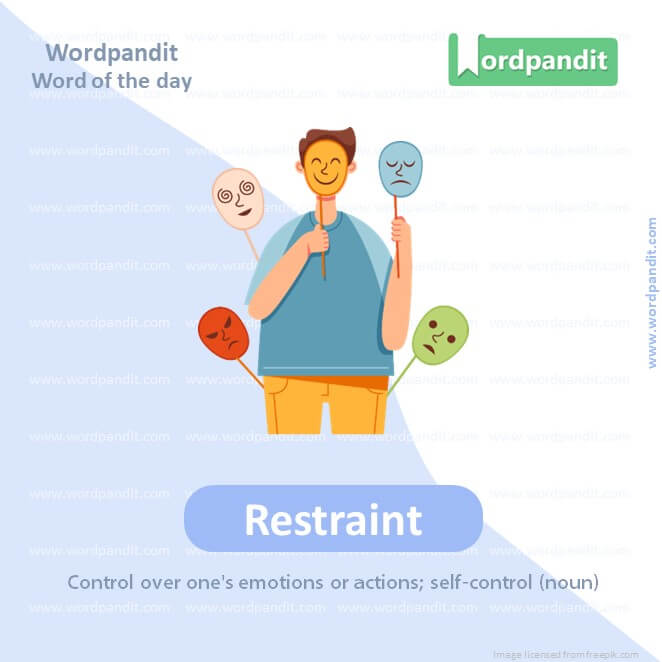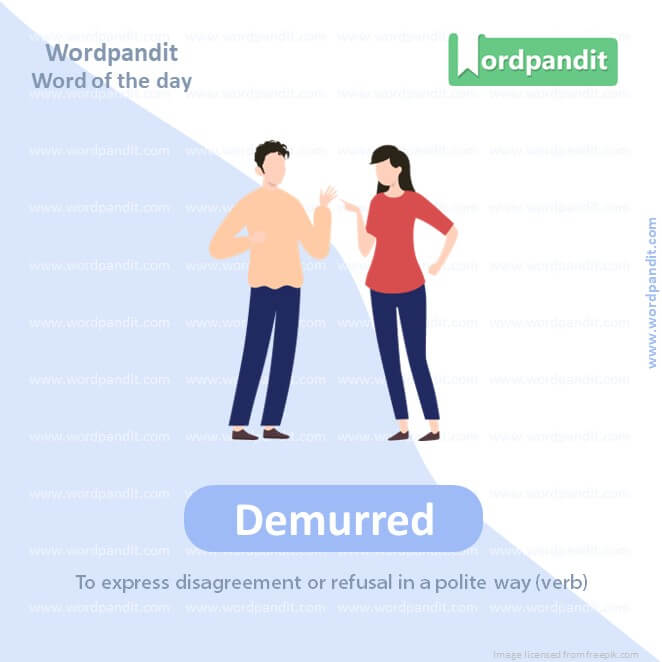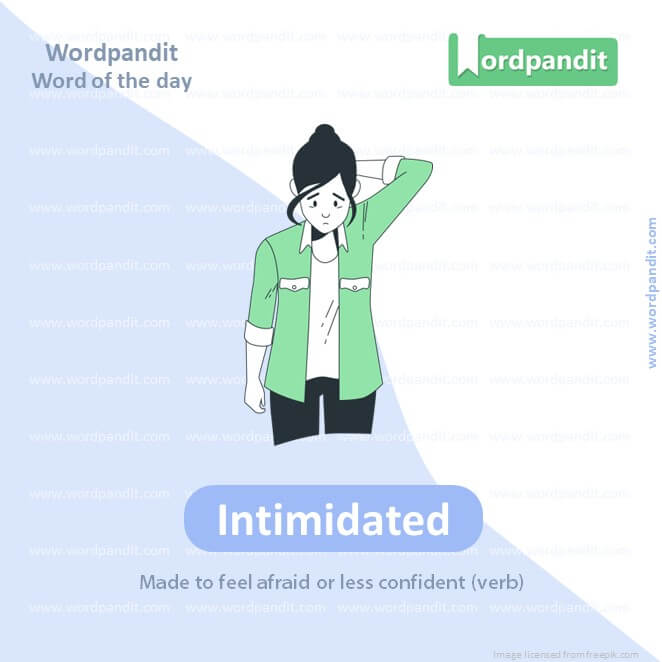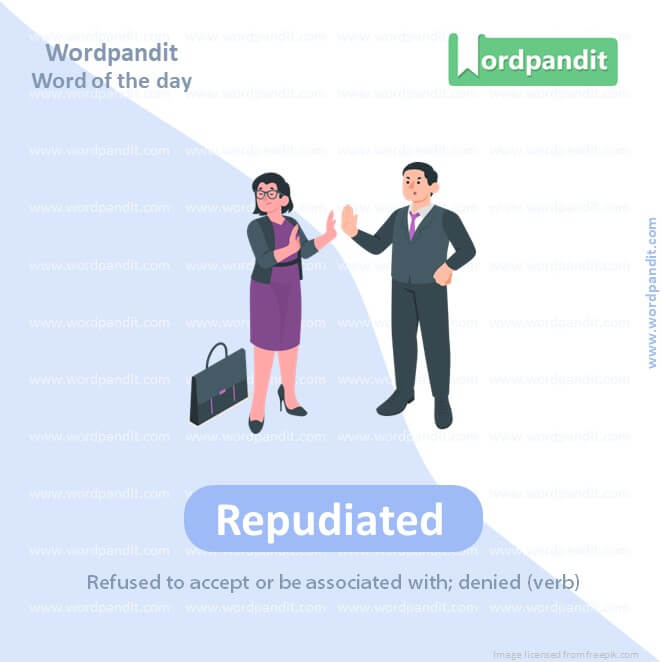Daily Vocabulary Words: List of Daily Used Words in Leading International Newspapers
Hi there. Welcome to this special section @ Wordpandit.
Our endeavour here is very simple: to highlight important daily vocabulary words, which you would come across in leading newspapers in the country. We have included the following newspapers in our selection:
• The New York Times
• The Washington Post
• Scientific American
• BBC
• The Guardian
• Psychology Today
• Wall Street Journal
• The Economist
We are putting in extensive work for developing your vocabulary. All you have got to do is be regular with this section and check out this post on a daily basis. This is your repository of words that are commonly used and essentially, we are posting a list of daily used words. Hence, this has significant practical application as it teaches you words that are used commonly in leading publications mentioned above.
Visit the website daily to learn words from leading international newspapers.
WORD-1: Investiture
CONTEXT: At her investiture, Chief Justice Warren E. Burger paraded the newly robed O’Connor down the court’s front steps, exclaiming to reporters.
SOURCE: Washington Post
EXPLANATORY PARAGRAPH: Imagine you have a special ceremony where you get a new toy or a crown that shows you have a new, important role, like being the leader in a game. That’s like an investiture. It’s a special event where someone is given a new job or title, often with a ceremony.
MEANING: The act of formally giving someone a title or position of authority (noun).
PRONUNCIATION: in-VEST-i-cher
SYNONYMS: Inauguration, Induction, Installation, Commissioning, Coronation
USAGE EXAMPLES:
1. The king’s investiture ceremony was grand and attended by many.
2. Her investiture as the new CEO was a significant event for the company.
3. The investiture of the new judges took place in the courthouse.
4. The mayor’s investiture included a speech about his plans for the city.

WORD-2: Restraint
CONTEXT: the first female justice on the Supreme Court, she had come to understand that self-restraint and civility would make her more, not less, powerful.
SOURCE: Washington Post
EXPLANATORY PARAGRAPH: Restraint is like when you need to control yourself from running around in a store. You have to stay calm and not touch everything you see. It’s about controlling your actions or feelings.
MEANING: Control over one’s emotions or actions; self-control (noun).
PRONUNCIATION: ree-STRAYNT
SYNONYMS: Self-control, Discipline, Moderation, Constraint, Inhibition
USAGE EXAMPLES:
1. She showed great restraint in not eating the last cookie.
2. The police used restraint when handling the situation.
3. He exercised restraint and did not reply angrily.
4. There should be some restraint on spending in the budget.

WORD-3: Demurred
CONTEXT: In an act of self-abnegation unusual among justices, she demurred.
SOURCE: Washington Post
EXPLANATORY PARAGRAPH: Demurred is like when you politely say ‘no thank you’ to something you don’t want to do, like if someone offers you food you don’t like.
MEANING: To express disagreement or refusal in a polite way (verb).
PRONUNCIATION: dih-MURD
SYNONYMS: Objected, Declined, Disagreed, Protested, Differed
USAGE EXAMPLES:
1. She demurred when asked to work on the weekend.
2. He demurred at the suggestion of going out in the rain.
3. Despite the offer, she politely demurred.
4. They demurred, preferring to stay at home.
WORD-4: Self-abnegation
CONTEXT: In an act of self-abnegation unusual among justices, she demurred.
SOURCE: Washington Post
EXPLANATORY PARAGRAPH: Self-abnegation is like when you give up your favorite toy so that someone else can play with it. It means not thinking about what you want and thinking about others instead.
MEANING: The act of denying oneself some rights, desires, or conveniences (noun).
PRONUNCIATION: self-ab-ni-GAY-shun
SYNONYMS: Self-denial, Self-sacrifice, Asceticism, Altruism, Renunciation
USAGE EXAMPLES:
1. His life of self-abnegation was admired by many.
2. The monk’s self-abnegation included giving up all personal luxuries.
3. She practiced self-abnegation by donating her time and money to charity.
4. Self-abnegation is often seen in caregivers who put others’ needs before their own.

WORD-5: Intimidated
CONTEXT: O’Connor’s law clerks were sometimes intimidated by her no-nonsense approach to work and life, but most of them came to revere her.
SOURCE: Washington Post
EXPLANATORY PARAGRAPH: Intimidated is like feeling scared because someone is much bigger or seems stronger than you. It’s when someone makes you feel afraid or not confident.
MEANING: Made to feel afraid or less confident (verb).
PRONUNCIATION: in-TIM-i-day-tid
SYNONYMS: Frightened, Bullied, Threatened, Daunted, Overawed
USAGE EXAMPLES:
1. The smaller player was intimidated by the larger team.
2. She felt intimidated during the interview.
3. He was intimidated by the difficult task ahead.
4. The new employee was intimidated by her boss’s stern demeanor.

WORD-6: Apprenticeship
CONTEXT: We were getting not just an apprenticeship in law but an apprenticeship in life.”
SOURCE: Washington Post
EXPLANATORY PARAGRAPH: Apprenticeship is like when you’re learning how to do a job by actually doing it with someone who knows a lot about it, kind of like learning to bake cookies by helping in the kitchen.
MEANING: A period of time spent learning a trade or skill from a skilled worker (noun).
PRONUNCIATION: uh-PREN-tiss-ship
SYNONYMS: Training, Internship, Mentorship, Indentureship, Learnership
USAGE EXAMPLES:
1. He started his career with an apprenticeship in carpentry.
2. Her apprenticeship at the law firm was a valuable experience.
3. The apprenticeship lasted for two years.
4. Many trades require a formal apprenticeship.

WORD-7: Repudiated
CONTEXT: she repudiated a state anti-sodomy statute, denouncing a “law branding one class of persons as criminal solely based on the State’s moral disapproval of that class.
SOURCE: Washington Post
EXPLANATORY PARAGRAPH: Repudiated is like when you say very strongly that you don’t agree with something or that you won’t be part of it anymore, like saying ‘no’ to a game you don’t want to play.
MEANING: Refused to accept or be associated with; denied (verb).
PRONUNCIATION: re-POO-dee-ay-tid
SYNONYMS: Rejected, Denied, Disowned, Disavowed, Renounced
USAGE EXAMPLES:
1. The politician repudiated the allegations against him.
2. She repudiated the contract they had agreed upon.
3. The company repudiated its previous environmental policy.
4. He repudiated the claims made in the article.
WORD-8: Plausible
CONTEXT: A majority-female court now seems plausible, if not likely, in the near future.
SOURCE: Washington Post
EXPLANATORY PARAGRAPH: Plausible is when something sounds like it could be true or real, like when someone tells you a story that seems like it could happen.
MEANING: Seeming reasonable or probable (adjective).
PRONUNCIATION: PLAW-zuh-buhl
SYNONYMS: Believable, Credible, Feasible, Conceivable, Likely
USAGE EXAMPLES:
1. His excuse for being late was plausible.
2. The detective found her story to be plausible.
3. The theory sounds plausible, but lacks evidence.
4. They presented a plausible plan for the project.
WORD-9: Resonates
CONTEXT: Alas, her private lament, conveyed to a friend later in life, resonates beyond the court’s marble steps: “Everything I stood for is being undone.”
SOURCE: Washington Post
EXPLANATORY PARAGRAPH: Resonates is like when a story or song makes you feel special feelings inside, like when you hear a story that reminds you of a fun time you had.
MEANING: Evokes a strong emotional or shared response (verb).
PRONUNCIATION: REZ-uh-nayts
SYNONYMS: Echoes, Reverberates, Strikes a chord, Appeals, Relates
USAGE EXAMPLES:
1. The speech resonates with the audience’s feelings.
2. The novel resonates deeply with readers who have had similar experiences.
3. The message of the film resonates across different cultures.
4. Her words resonated with everyone in the room.
WORD-10: Poignant
CONTEXT: It was a poignant exit for a woman who once ranked as the most powerful federal official of her gender in America.
SOURCE: Washington Post
EXPLANATORY PARAGRAPH: Poignant is when something is really touching and makes you feel a strong emotion, like when a story is so beautiful or sad that it makes you want to cry.
MEANING: Evoking a keen sense of sadness or regret (adjective).
PRONUNCIATION: POYN-yunt
SYNONYMS: Moving, Touching, Heartrending, Emotional, Melancholic
USAGE EXAMPLES:
1. The movie’s ending was incredibly poignant.
2. She shared a poignant memory of her childhood.
3. The book’s poignant themes resonated with many readers.
4. His speech was poignant and deeply moving.
Vocabulary Daily
Language learning is a beautiful yet complex dance, where ‘vocabulary daily’ connote the integral beats. These everyday words form the essence of most of our conversations and are the cornerstone of effective communication. However, a methodical approach is required to efficiently learn ‘vocabulary daily’.
One key approach to learning ‘vocabulary daily’ is consistency. Engaging with a few words every day consistently fosters better understanding and recall than sporadic cramming sessions.
Interactive tools can add a touch of excitement and ease to mastering ‘vocabulary daily’. Flashcards, word of the day calendars, language learning apps can make the learning experience fun and fruitful. These tools not only introduce new words but often provide a context of use, aiding your understanding.
Making ‘vocabulary daily’ a part of your daily life is a surefire success strategy. Incorporating these words into day-to-day conversations, writing, or social media interactions greatly enhances retention and usage. It also allows you to witness firsthand the impact of a rich vocabulary on the clarity of expression.
To effectively grasp ‘vocabulary daily’, always keep a learner’s curiosity. Explore books, news articles, music, and podcasts in the respective language. This exposure helps in absorbing the words in a real-world context, thus building a robust bond with ‘vocabulary daily’.
In conclusion, understanding ‘vocabulary daily’ is an ongoing process that necessitates consistency, interactive learning, practical application, and a learner’s curiosity. By following this comprehensive approach, the task of mastering ‘vocabulary daily’ becomes less of a chore and more of an enriching journey that can lead to eloquent and effective communication. So, step into the exciting world of ‘vocabulary daily’ and let it colour your language learning adventure with shades of clarity, confidence, and joy.











